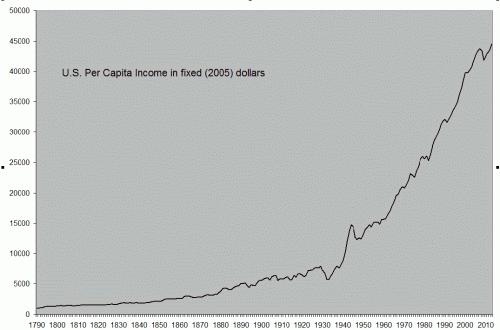In early 20th century China, goods were frequently transported by barges pulled by teams of six men. The men were paid only if they delivered their goods on time. Therefore they all agreed to pull as hard as possible.
This is a classic example of what economists call a Prisoner’s Dilemma — a situation where everyone wants to cheat, regardless of whether he believes the others are cheating. Any bargeman might reason that “If the others are pulling hard, we’re going to make it anyway, so I might as well relax. And if the others are not pulling hard, we’re not going to make it anyway — so I still might as well relax .” Therefore they all relax and nobody gets paid.
According to my late and much lamented colleague Walter Oi, the bargemen frequently solved this problem by hiring a seventh man to whip them whenever they appeared to be giving less than 100%. You might suppose, at least if you’re a person of ordinary tastes, that hiring a man to whip you is never a good idea. There’s a sense in which you’d be right. But hiring a man to whip your colleagues can be a very good idea indeed, and if that requires getting whipped yourself, it might prove to be an excellent bargain.
If I’d lived in China a hundred years ago, I believe I’d have gone out of my way to buy goods from the teams with whipmasters — partly because that’s where I’d expect the best service, but also partly because I’d feel a certain combination of admiration and loyalty for the teams who were working so hard to earn my business.
That’s how I feel about the folks at Amazon. Based on the fabulous service I’ve been getting, I’m confident these people are knocking themselves out to do a good job for me. In fact, it’s been widely (and perhaps accurately) reported that during a heat spell a couple of summers ago, workers in an un-airconditioned Pennsylvania warehouse continued to fill orders even as several were being treated for heat sickness.
There’s a narrative going around that tries to paint these workers as victims, though I’ve heard no version of that narrative that makes clear who, exactly, is supposed to have victimized them — the stockholders? the management? the customers? the do-nothing Congress? But there’s little point in trying to make sense of this narrative, since it’s so obviously wrong to begin with.
Imagine a team of ambitious but relatively low-skilled workers. They know that if they all push themselves to the limit, they’ll all be more productive and therefore earn higher wages. They also know that if they all promise to push themselves to the limit, they’ll all break their promises, figuring that success or failure depends almost entirely on what the others do.
Continue reading ‘Amazon’s Bargemen’



